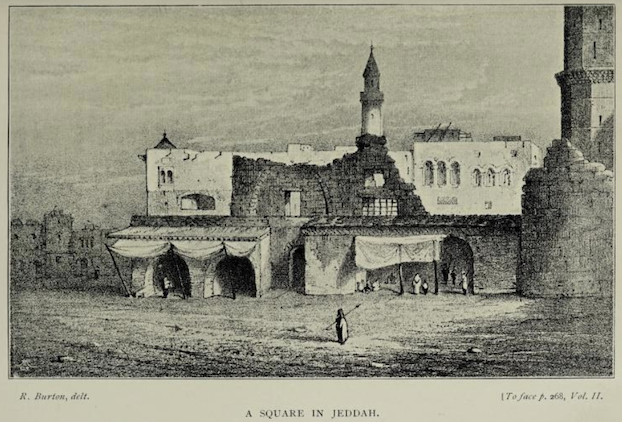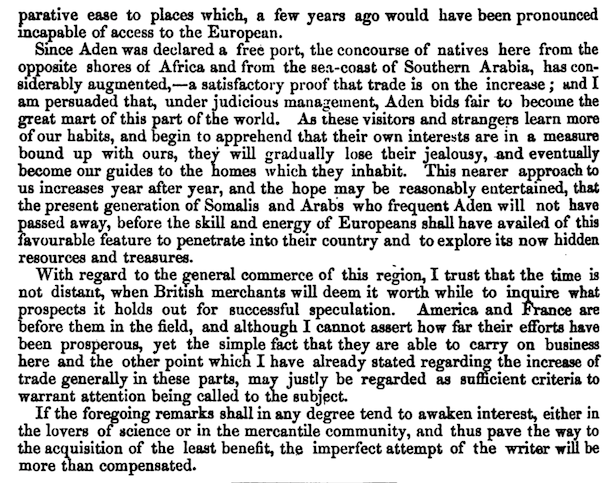
This is a beautifully filmed and played Youtube video of Lebanese music performed in the ruins of a temple in Lebanon.



This is a beautifully filmed and played Youtube video of Lebanese music performed in the ruins of a temple in Lebanon.



This is a fascinating analysis by Hassan Hassan of the Saudi royal family trying to rewrite its past. It is available on the New/Lines website.
Here is the conclusion:
“Whatever Wahhabism is morphing into, though, it will not lead to a new lease on life. In Saudi Arabia and beyond, Wahhabism has been losing ground for too many years. The factors that once helped it grow no longer exist. Politically, the state no longer needs the ideology, which would not have flourished without the state. Even if the Saudi state decided to change its view about the utility of Wahhabism, it would not be able to reverse the trend. Wahhabism ran out of gas ideologically before it did politically. The ideology, sometimes seen as a distinct sect even from the Sunni tradition it emerged from, had long projected power disproportionate to its actual appeal and strength because it had the backing of a powerful and wealthy kingdom and a vast network of rich and generous donors. That bubble has now burst, and Wahhabism is reduced to its right size of being a minor player in the Muslim landscape, progressively including in Saudi Arabia.“

The current de facto ruler of Saudi Arabia, MBS, has promoted a major development scheme entitled Vision 2030. This time, instead of sending henchmen with cleavers, he is authorizing imported Western bulldozers to basically turn the older parts of the historic port of Jeddah into a wannabe Dubai. As noted in a recent article on Qantara:
“Currently, the areas most affected by the destruction are those to the south and east of the old city, the Balad, parts of which have been designated UNESCO World Heritage sites. Prior to evacuation, between 10,000 and 50,000 people lived in each of these neighbourhoods. That means tens of thousands are likely to lose their homes. Estimates circulated by dissidents and demolition critics range from hundreds of thousands to one million."
The port of Jeddah has been the main stopping point for Muslim pilgrims on their way to Mecca for almost fifteen hundred years. It is described by early geographers in detail, given the amount of travelers who passed through. For the modern kingdom, however, history means nothing and can be erased by the whims of the super rich. This continues the destructive Wahhabi impulse that sacked Kerbala in 1802, as described below by ‘Uthman b. Abd Allah b. Bishr (d. 1872) in his Unwan al-Majd fi Tarikh Najd (Mecca, 1930):
“In the year 1802, Ibn Sa’ud made for Karbala with his victorious army, famous pedigree horses, all the settled people and Bedouin of Najd, the people of Janub, Hijaz, Tihama and others…The Muslims [i.e. the Wahhabis] surrounded Karbala and took it by storm. They killed most of the people in the houses and the markets. They destroyed the dome above al-Husayn’s grave. They took away everything they saw in the shrine and near it, including the coverlet decorated with emeralds, sapphires and pearls which covered the grave. They took away everything they found in the town—possessions, arms, clothes, fabric, gold, silver, and precious books. One cannot even enumerate the spoils! They stayed there for just one morning and left after midday, taking away all the possessions. Nearly 2000 people were killed in Karbala.”
When the well-primed news media talk about reform in Saudi Arabia, it is worth noting that reform has a long way to go, given the roots of its blood-soaked Wahhabi past. It will take more than letting women drive at the same time that women who protest are jailed, basic human rights in the kingdom are ignored, and heads are still chopped off in public. Even the chopping up of a journalist who dared to call out the corruption is now ignored, because of the profit for a family which defies the morality of the country’s own Prophet. As long as the Saudi regime buys Western military supplies, they are given free rein to use them, resulting in the world’s worst humanitarian disaster in Yemen, with thousands dead and more dying every day, and fueling the sectarian divide between the Saudis and Iran.
There is a saying that blood is thicker than water, but it seems that for the Saudi elite it is oil which is thicker than either blood or water. They have plenty of oil, have shed lots of blood and are desperate for water. All this leads to an economic domino effect: the world craves oil, oil revenues fuel a family wealth fund which spreads an intolerant interpretation of Islam worldwide, and then much of the oil revenues come back to oil-hungry countries who sell weapons to the Saudis.
Imagine if Greece leveled the Parthenon for a shopping mall and Italy replaced the Colloseum with a football field. In a sense that has already happened to Mecca and Medina. Welcome to Saudi Arabia in 2030…

James Vaughn, a physician stationed in British-controlled Aden in the mid-19th century, published an article in 1853 in the British Pharmaceutical Journal and Transactions (12:226-229,385-388), which is available online. After discussing several medicinal and local exports, such as incense, dragon’s blood, and local dye plants from Yemen and from Somalia, he admonishes his colleagues back in England to do serious study of the botanical wealth of Yemen. I attach his comments below as they are still relevant a century and a half later…



Lament for Yemen
Yemen,
your body lies crushed
beneath the rubble that was the home
where you were born
your blood floods the land
breaks the terraced slopes
where sorghum supplied every need
your breath is a raging wind,
a last gasp in the swirling dust
but despite all odds you cling to life
you sing, you dance, you will not be denied.
Sanaa,
your towering buildings bow down
in prayer for the dead
the saila swells with your tears
Bab al-Yemen closes its eyes
blind as dark nights more dense
than locusts devouring all they see
but as the bombs slash the sky
hope shines through the alabaster
carved by your grandfathers’ hardened hands.
Yemen,
your past is like no other
your present is not of your doing
no matter how many bombs fall
how many families mourn
how long the world ignores you.
The smile of one of your children
will outlast all the vain kings in their palaces.
Your future will not be denied.
Daniel Martin Varisco, February, 2022
[Words can no longer describe the suffering inflicted on the people of Yemen; the damage is beyond comprehension, where only poetry can dare to speak.]

There is a fascinating Facebook site on old photographs of Jerusalem. Below is one of the images. Note the Victrola.
